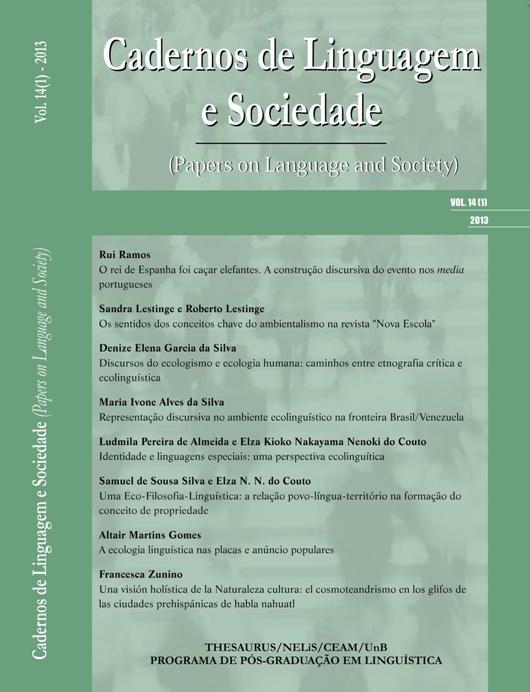UMA ECO-FILOSOFIA-LINGUÍSTICA: A RELAÇÃO POVOLÍNGUA- TERRITÓRIO NA FORMAÇÃO DO CONCEITO DE PROPRIEDADE
DOI:
https://doi.org/10.26512/les.v14i1.22224Keywords:
Property. Fundamental ecosystem of language. Territory.Abstract
In this paper we intend to show that the relationship of a people with their environment is fundamental in shaping their concept of ownership / possession. Communities that have a more direct relationship with their natural environment tend to have a more fluid sense of ownership, in which the idea of “collective ownership” is more common than that of “individual ownership”. In cultures whose relationship with the environment is more mediated by culture the opposite occurs, and “mine” is more prevalent than “ours”. For the purposes of this study we will analyze some linguistic terms used to label the idea of possession of plants, animals and land in two distinct cultures, one that maintains a direct relationship with their environment, Indians Xerente Akwen, another representing our entire Western culture. In this case we will analyze some terms of the Bible, under the assumption that our Western culture has two major cultural bases, the Judeo-Christian and Greek culture. The former is here represented by the Bible.
Downloads
References
BÃBLIA SAGRADA. Edição revista e Atualizada. Tradução: João ferreira de Almeida. Sociedade Bíblica do Brasil.
BRAGGIO, Silvia Lucia Bigonjal. Os xerente akwen, os animais e as plantas: uma revisita aos inalienáveis com a semântica da gramática. Signótica v. 23, n. 2, p. 439-458, jul./dez. 2011.
COUTO, Hildo Honório do. Ecolingüística. Estudo das relações entre língua e meio ambiente. Brasília: Thesaurus Editora. 2007.
HARRIS, R. Laird (org). Dicionário Internacional de Teologia do Antigo Testamento. Vida Nova. SP. 1998.
LOCKE, John. Segundo tratado sobre o governo civil e outros escritos. Vozes. Petrópolis. RJ. 2001.



